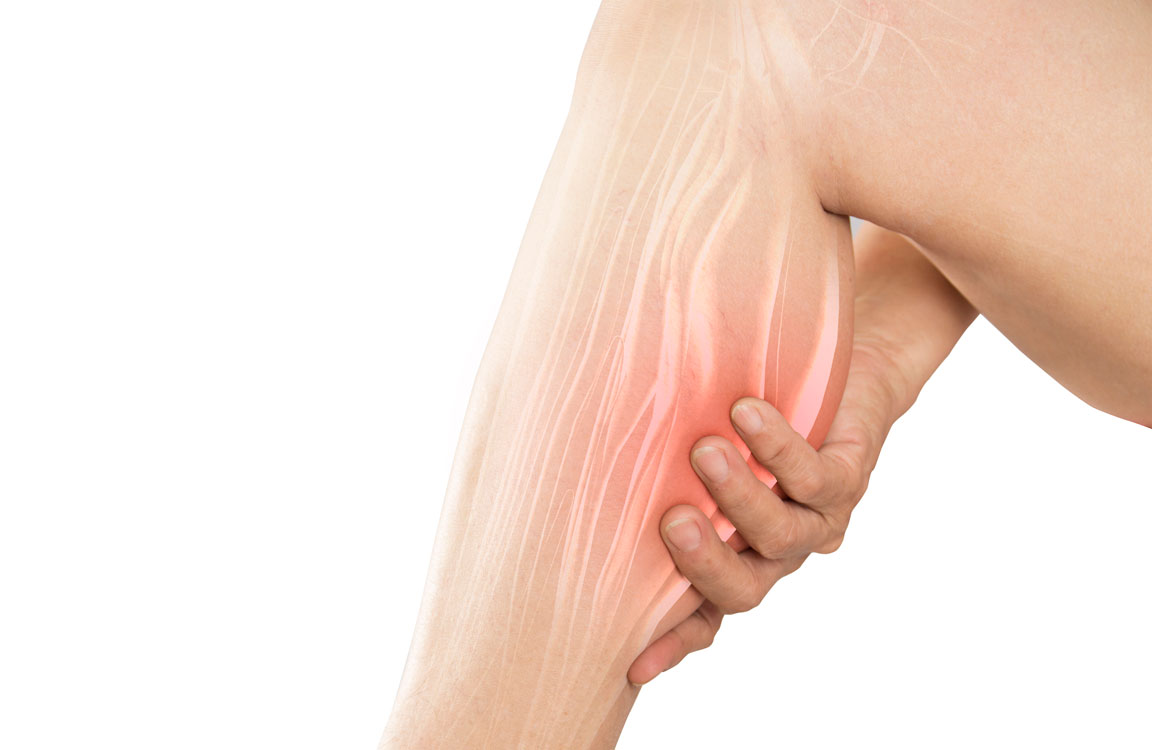Do You Hate Being Jolted from Bed?
 By: Michael D. Allen, DC, NMD
By: Michael D. Allen, DC, NMD
Functional Neurologist
Are you troubled by muscle cramps? Have you ever been jolted from a deep sleep in the night or otherwise stopped in your tracks by a sudden Charley horse that won’t go away fast enough? If so, then you know that when muscles cramp your world stops until they’re gone!
Most often cramps develop in the calf muscle, but they can happen in any muscle. And then there’s that hard lump of muscle tissue beneath your skin that aches or feels bruised for a while afterward.
If you look up muscle cramps on the internet the list of possible remedies is exhaustive. The cause of those late-night leg cramps is often unknown, but some cases have been linked to sitting for long periods, over-exertion, or standing or working on concrete floors. Some articles suggest that long periods of exercise or physical labor, particularly in hot weather, can lead to muscle cramps and they can be caused by certain medical conditions.
A low mineral presence can tend to increase the activity of nerve tissue, producing cramps. The usual remedies include taking more minerals (particularly magnesium and calcium, but also potassium and sodium), drinking more water or stretching the muscles out. But what do you do when you work diligently to eliminate your cramps, but they keep happening? Maybe there is a bigger picture.
When doing the things that work most often no longer does the trick, consider your ability to digest fats. The metabolism of both calcium and magnesium requires an acid medium, so if you want to raise the level of either one or both, they should not be consumed with any fatty substance. Magnesium activates vitamin D – an oil soluble vitamin – which influences calcium and bone health. Further, moving calcium, for example, from the blood and into the tissues requires unsaturated fatty acids. So, the secret is to take calcium and magnesium on an empty stomach with an acid substance – like betaine hydrochloride – and consume fats during your meals; betaine hydrochloride is helpful here, too. Together, this procedure stresses the importance of stomach function and gallbladder metabolism when it comes to optimal muscle function.
While stomach issues can be related to heartburn, gallbladder symptoms are not necessarily accompanied by pain. Something simple like burping a couple hours after fatty meals may be your only symptom. Bloating, a grumbly abdomen, or stools that tend to float are also clues to gallbladder issues.
If your gallbladder is having trouble try taking bile salts or some other gallbladder remedy, like enzymes, for example, with your meals. If your nutritional supplement is food-related you may be able to take them on an empty stomach and before bed. Some people take more than the suggested dose before their muscles calm down but be sure to check with your doctor before you take more than the recommended dose on the label.
There are many other natural ways to evaluate gallbladder issues. Call me at 949-855-9629 or make an appointment if I can help you look further into preventing or treating your muscle cramps or gallbladder condition, or if you simply wish to achieve optimal health.



